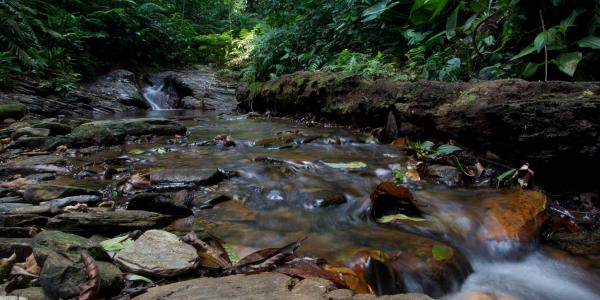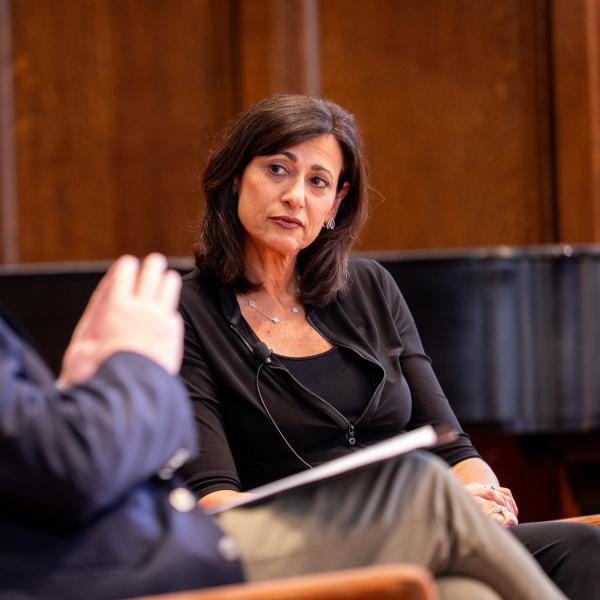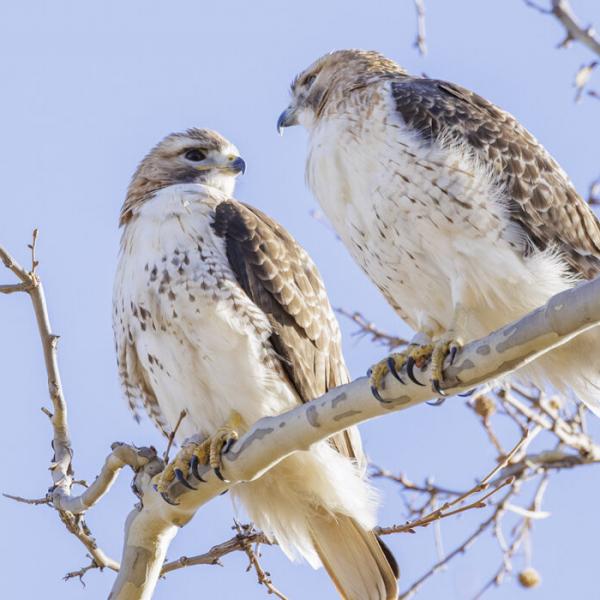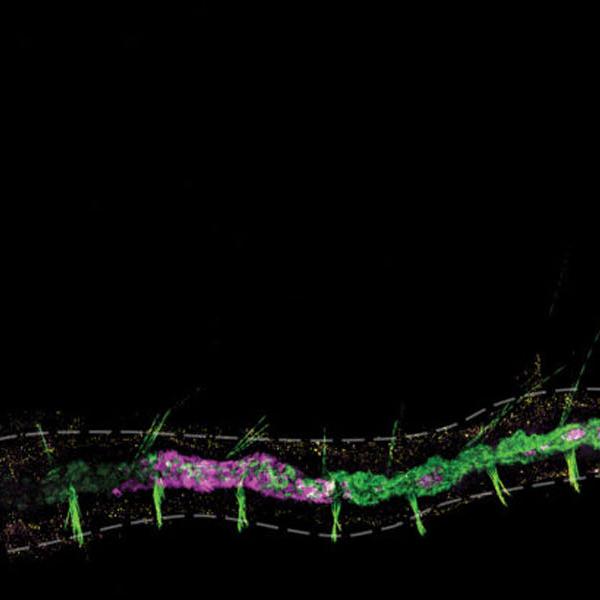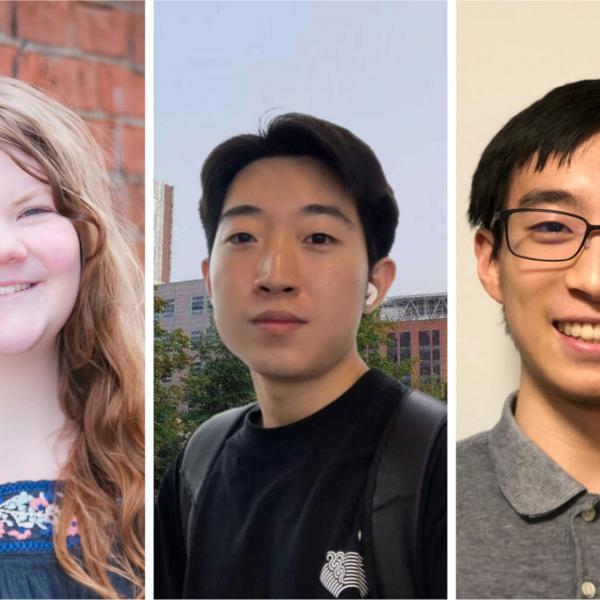Swanne Gordon is an evolutionary biologist and behavioral ecologist whose research is built around the underlying question: why is there diversity in nature, and how is it maintained? Her work is interdisciplinary and focuses on the evolution and maintenance of color polymorphisms in warning coloration, rapid evolution, and the interaction between sex linkage and adaptation. To study these topics, she uses a combination of field, laboratory, mathematical, and behavioral experiments. She has two main study systems: the wood tiger moth Arctia plantaginis, and the Trinidadian guppy Poecilia reticulata. Her research is interdisciplinary and involves collaborations with multiple molecular and theoretical biologists. Prior to her appointment at Washington University, Gordon was an Academy of Finland Postdoctoral Fellow at the University of Jyväskylä. She earned her doctorate at the University of California, Riverside.
Q. Is there a particular event or person that got you interested in biology when you were younger?
A. As a child, I was always fascinated by diversity, or the idea that so many different forms of the same organism can coexist and thrive together in certain environments and not others. Now that I think about it, this probably was owing to the fact that I was a first-generation Caribbean-Canadian child growing up in francophone Montreal Canada. I would spend many an hour in forests watching and being in awe of the natural diversity around me, and although my parents hoped I would major in biomedical research or medicine (once I showed an interest in the sciences) the seed had already been planted long ago, leading me exactly where I am. Now I study broadly how and why organisms (phenotypes and genotypes) successfully inhabit certain environments and how they adapt to environmental and sometimes extreme or abrupt changes; quite a timely subject given our rapidly changing world.
Q. Can you tell me a little bit about your background, i.e. where you grew up and early family life?
A. Both sets of my grandparents were born and raised in Jamaica. They each independently settled in Montreal Canada with their children, where my parents met. My mom worked in sales for the major English newspaper in Montreal, and my dad was a toxicologist who got a stable position much later than his credentials deserved. Both my parents are now recently retired and home enjoying the well-earned spoils of their hard labor.
Q. What inspires you as a scientist and teacher?
A. As a minority in STEM it is easy to feel that you don’t belong in academia because there are rarely people that look like you in positions of power in it, or really in any positions at all. The overt racism my father went through as a black scientist in North America in the 70’s has now given way to more covert racism (although my experiences show me the other definitely still exists); where people in academia (students and staff) devalue your merits, question your presence even in spite of your CV, limit your promotions, cite and collaborate with you less, etc. It is imperative that we fight against and fix these issues. The importance of this cannot be overstated because as I always say and wholeheartedly believe, only when the broad diversity of humanity is fairly represented, can science truly appeal to our society as a universal knowledge.
When I go through negative experiences a few things keep me going: 1) I think about my amazing Dad who pushed through so many obstacles to remain in science and eventually became one of the most valued pharmaceutical researchers in his field; 2) I think about my superstar mother who managed to raise six children on what was initially a very tight or little to no budget at all when I was a child, while working and showing me that a woman’s place is wherever she wants it to be; and 3) I think about how my very presence should be an indication to minorities, and really all students, that one can never give up on their passions and dreams no matter how unlikely they may seem. I am a living example that hard work, passion, unrelenting drive, a strong support system, perseverance, sacrifice, and a little bit of luck can often get you exactly where you need to be, even in institutions whose very structures were set up to keep you out.
Q. What do you like to do in your free time?
A. I spent most of my childhood in libraries, which should let you know how much of a nerd I was (maybe am). I am still a voracious reader and it is rare to not find me with a book in my spare time. Other than that, I just hang out with my fantastic, funny, and sweet babies (3 year old Kai and 6 year old Amaya) and loving husband. We also like to explore nature and do experiments together as a family.
Q. What do you want undergrads to know about your lab?
A. I was pre-med in my undergrad years. My younger brother was born with sickle cell anemia and we were told that he would not live to adulthood. My siblings and I spent a good part of our childhood in hospitals visiting my brother and he had many, many near death moments. To this day any nighttime call gives me massive anxiety remembering the calls we used to get from the hospital when his prognoses would take a turn for the worst during some sickle cell crises. I always hoped growing up that I could become a doctor and help take care of him, but during my undergrad, I quickly realized that medicine was not the surefire or only way to help people like my brother. Research was another way, and in terms of sickle cell I quickly realized that a good knowledge of evolutionary theory was required to even understand the history of the disease and generate its cure. Thankfully my brother is still alive today thanks to a miracle drug that he started in experimental trials as a teenager. I didn’t end up going into biomedical research or medicine because I found my true passion in my broad exploration of the sciences in my undergrad. However, the part of my research involving examining pedigrees, inheritance, and the evolution of sex chromosomes is a nod to that early interest.
Similarly, it is my hope that students take the time to expand their horizons during their undergrad and graduate schooling. Modern science in my opinion is about integrating and bridging the gaps between fields and sub-fields. It is about having a broad understanding and respect for other disciplines than the ones you initially think you are interested in, because one never knows where inspiration and innovation will take root.
Students should come join my lab for various reasons: a truly inclusive and fun lab environment open to all; the ability to do innovative and independent research that integrates many different sub-disciplines (including potentially supporting ones you may be passionate about that we do not yet currently do), and the ability to travel to exotic places while performing captivating field research or staying right at home in our various labs (butterfly/moth, fish, chemistry, and upcoming artificial stream system in Tyson). We will be advertising for new positions soon, but students are always welcome to come talk to me anytime they want to try out for a lab position.
To learn more about the Gordon Lab, visit: https://swannegordon.wordpress.com/research-2/. To get involved, email Swanne at swanne.gordon@wustl.edu.

